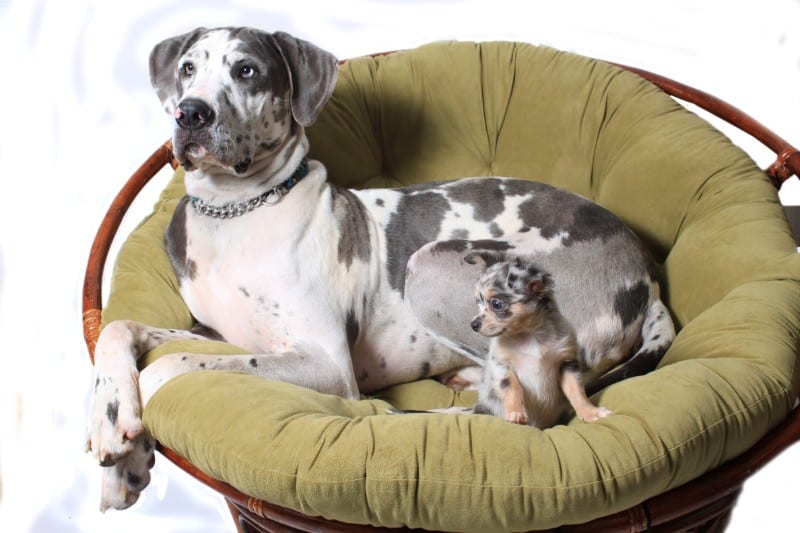
For many dog owners and lovers, all dogs are created equal. They are all adorable, wonderful, and deserving of loving, forever homes.
Unfortunately, a significant percentage of canine adoptions happen sort of haphazardly. Prospective dog owners may be talked into adoption by well-meaning family members or friends. But without extensive research or consideration, certain dog breeds may not be right for your specific situation.
Whether pint-sized or king-sized, it’s essential to find the right match for you, your family, and your lifestyle.
Dropping Dough
The size of dog breed you choose has a direct impact on your wallet. Big dogs obviously require more sustenance than their smaller counterparts, but the cost analysis must also extend to toys, treats, gear, grooming, and travel. If flying with a big dog isn’t possible due to their size or the prohibitive cost, the costs associated with large breed boarding should also be weighed.
In short, small dog breeds are more commonly adopted because they are perceived as being less expensive.
Big Dog Breeds in Small Spaces?
It isn’t unmanageable to have a big dog in an apartment, but limited space can negatively affect them (and their co-habitants!). Certainly, urban dog ownership has evolved in wonderful ways. But if you do happen to live in a small space without an enclosed yard, you’ll need to be prepared to meet the physical and mental demands of a big dog.
Furthermore, the cost of training a larger dog can set you back a little further. They can do more damage than smaller dogs and may need extra schooling to behave the way you want them to.
Dispelling Small Dog Myths
All dogs require and benefit from outdoor physical exercise. Small dogs aren’t like indoor-only cats. Instead, they require daily brisk walks, sufficient opportunities to answer nature’s calls, and exposure to other pets and people.
Small dogs may have reputations for being hyperactive, yappy, and high-strung. However, with proper outlets, they’ll burn off excess energy and be able to chill out more. If you aren’t able to play, exercise, and create special opportunities for your dog, look into the costs of dog daycare, dog walkers, or daily dog sitters.
Health Risks
Both big dogs and little dogs face certain health challenges. For example, while smaller dogs tend to have longer lives, they can be susceptible to collapsing trachea, kneecap injuries, and hypoglycemia. Some small dog breeds may suffer bone fractures more easily, and may not be right for families with small kids. They are also highly disrupted by temperature extremes and require extra attention and vigilance.
Large dogs are known for their risks of hip dysplasia, bloat, ligament tears, and arthritis. Some large dog breeds, such as Bernese Mountain Dogs, Great Danes, Saint Bernards, and Newfoundalnds typically only live between 7-10 years.
We Love All Dog Breeds
Having an understanding of the lifespan of certain dog breeds is helpful in the decision-making process. Wellness care, excellent nutrition, and disease prevention can help a dog live 15 years or more. However, in the end it comes down to your own lifestyle, housing situation, and financial solvency.
All dog breeds are great, and our veterinarians and staff members are always available to discuss what it takes to care for them.
Recent Posts
About Us
We know that choosing the right veterinarian for your pet (and you) can be a challenge. Yet, with our stress-free handling, our long-term, experienced staff, and a state-of-the-art facility, we make the decision an easy one!
